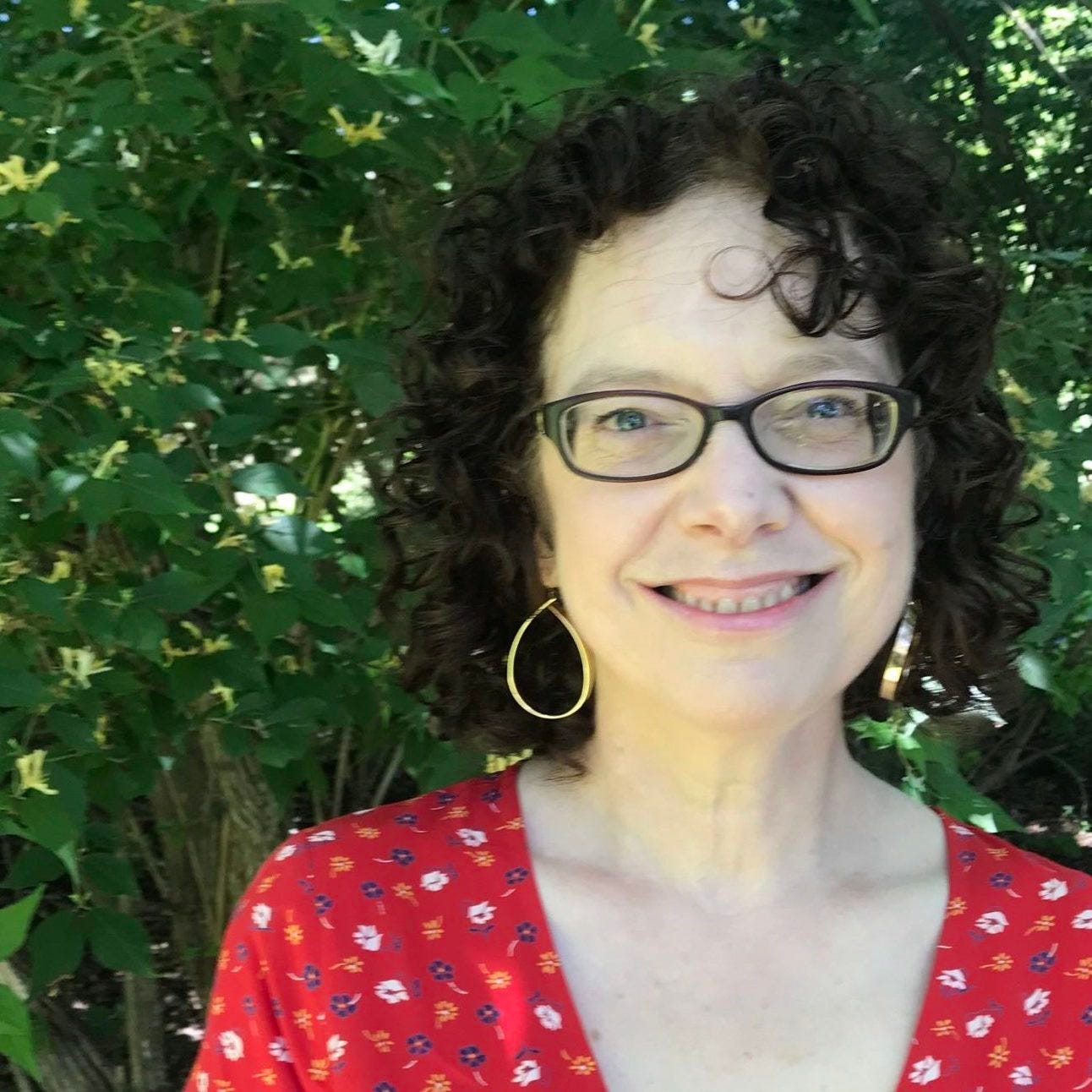Guest Commentary from my friend, Laura
On Randi Weingarten’s Belief that Jewish Privilege Drives the Push to Reopen Schools
Hi all, Erika here…
Since the public launch of Parents Defending Education (where I am the Director of Outreach), I have not come up for air long enough to write here. That simple fact should give you a sense of the sheer volume of parents (and teachers and grandparents) who have reached out to us for help during our first 10 days.
My dear friend and former colleague, Laura Waters, is not only one of my favorite people on planet earth but also a wonderful writer who uses her gift with the written word to advocate for quality education for all children. She brings two important lenses to that work: she is a mother of four whose youngest child has severe special needs and she served twelve years on her local school board, ten as president.
Laura punches back hard when powerful people do and say bad things and her response to Randi Weingarten’s recent comments are worthy of all of our time. I’m not only saying that because she’s my friend. In case you don’t remember from past posts here, Weingarten is the president of the American Federation of Teachers and has played an outsized role in keeping schools closed in cities across the country.
So without further ado, meet Laura.
My take on Randi Weingarten’s Belief that Jewish Privilege Drives the Push to Reopen Schools
By Laura Waters
Okay, this is personal. American Federation of Teachers President Randi Weingarten has labeled American Jews as “part of the ownership class” because (some of us? All of us? Did she take a poll?) are critical of AFT’s resistance to reopening schools for in-person instruction. And why are we critical? According to Weingarten, in an interview with the Jerusalem Post, Jews want schools to reopen because we are all rich and don’t need public schools anymore so we don’t care about safety from COVID-19. She says,
American Jews are now part of the ownership class. Jews were immigrants from somewhere else. And they needed the right to have public education. And they needed power to have enough income and wealth for their families that they could put their kids through college and their kids could do better than they have done. Both economic opportunity through the labor movement and an educational opportunity through public education were key for Jews to go from the working class to the ownership class. What I hear when I hear that question is that those who are in the ownership class now want to take that ladder of opportunity away from those who do not have it. Am I saying that everything we do is right? No. Are people in Los Angeles fearful? Yes.
The interviewer asks, “so you see [those who want to reopen schools] as a privileged argument?” Weingarten responds, “Oh my God, it’s a totally privileged argument.”
One hardly knows where to begin.
I’ll force myself.
While my family benefitted enormously from the labor movement (I’ve written about this here) it might behoove Weingarten to differentiate herself from the other 7 million American Jews instead of stereotyping our lives and resources. She may be part of the “ownership class” but should speak for herself: Few of us make over $500,000 a year and divide our time between a home in Manhattan and another in the Hamptons. And some of us (me! My friends! My relatives!) aren’t in social circles with “friends whose kids are in Jewish private schools who talk to me at length about how much they had to increase tuition and how the schools got money from PPP.”
Second, of course we “needed” public education; many of us still do! My parents, whose parents emigrated here from Eastern Europe, went to NYC public schools and then Brooklyn College (part of the City University of New York). Then they sent me and my sisters to public schools. Come college, they couldn’t afford Cornell like Weingarten’s parents so we went to the State University of New York.
Sure, my parents did better than their parents but, honestly, that wasn’t much of a reach. My grandparents came here without a word of English and almost no money; two of the four had never gone to secondary school. Miraculously they made it to the middle class and my parents did a little better. My husband and I did a little better too. But “ownership class”? Hardly. My kids (the three who have launched) work hard every day.
And if you look at the data, while American Jews tend to be wealthier and more educated than the average American, just 30% earn a household income of more than $100,000 per year. Also, 34% of Jews have postgraduate degrees but “that number is trounced by 38% for Hindus and 43% for Unitarian-Universalists. Similarly, 61% of Jews have either a four-year or postgraduate degree, compared with 69% of Hindus and 65% of Unitarian-Universalists.”
Anyway, what does wanting schools to reopen have to do with being Jewish? Eighty percent of parents, according to a February Gallup poll, want schools to reopen for in-person instruction. Is Weingarten proposing that a group comprising 2% of the American population could have skewed Gallop’s results? Numerate much?
Randi, you are not representative of all American Jews and your delusion that you are is at best solipsistic and at worst anti-Semitic. In fact, a non-profit called StandWithUs, which fights anti-Jewish sentiment, said you are “out of touch” and trafficking in anti-Semitism.
“As a non-partisan Israel education organization, StandWithUs takes no position on the debate over when schools should reopen,” Roz Rothstein, cofounder and CEO of StandWithUs, said. “We work with many Jewish students and parents in Los Angeles and are extremely disappointed by Randi Weingarten’s inaccurate and dangerous generalizations about our community. Her comments are shockingly out of touch with the actual experiences of countless Jewish families before and during the COVID-19 pandemic, give undue legitimacy to antisemitic stereotypes, and do nothing to help bring people in Los Angeles together during this difficult time.”
In perhaps the greatest irony, Weingarten makes Jewish-Americans the scapegoats for a labor union historically led by Jews, adding the “privileged” drive to reopen schools to a long list of anti-Semitic tropes: Jews make matzoh from Christian children’s blood, the Protocols of the Learned Elders of Zion, Marjorie Taylor Greene’s “Jewish lasers.”
Here’s what I think. While many Americans — regardless of religion–want schools to reopen, Weingarten senses an opportunity. With schools mostly shuttered for a year, the whole system is unstable. While some of us see this as an opportunity for transformative improvements, others see this as an opportunity to solidify barriers to change.
Expansion of public charter schools? Not during a pandemic!
Standardized testing that allows us to document achievement and opportunity gaps between low-income students and higher-income students, between Black students and white students? Not during a pandemic!
Tying teacher evaluations to student outcomes? Not during a pandemic!
And then the temporary becomes, well, just the way we do things, especially with the federal education law up for renewal this year.
Maybe I’m paranoid. Maybe Weingarten is just a myopic and privileged member of the ownership class so enmeshed in a cocoon of entitlement that she casts her own experiences as a Jew in America as universal, a kind of metonymic lapse in perception.
Or maybe she’s just being strategic. Not sure which is worse.
At any rate, Weingarten really needs to get out more. Its a big world out there, Randi! Jewish or not, we’re not all you!
This piece first ran here. To read more of Laura’s work, she mostly writes here at New Jersey Education Report.





Congrats, Erika. (Just signed on as a member of Parents Defending Education). Thank you for posting Laura's piece. Wish this could be plastered all ovr NYT, LATimes, Projo, WSJ.
I'm not sure why any demographic information about parents who want in-person publicly funded education options for their children matters to those who are deciding whether or not to offer that option. Weingarten's comments and Laura's clear response reminded me of this quote from Michael Barber's book, Instruction to Deliver. (Barber was the British equivalent of the secretary of education during Tony Blair's administration)
"If they are to be universal, modern public services have to be so good that the growing numbers of people who can afford the private alternative still choose them. This is a much higher bar than prevailed in the twentieth century. It is of decisive importance because, in the long run, the relatively wealthy will be willing to pay taxes for public services only if they use them."
Publicly funded education options should be attractive to and responsive to all Americans, regardless of their race, income, eligibility for special education services, etc.
Weingarten's comments are dangerous because it suggests that if it's OK to say publicly funded schools don't have to respond to rich people, they might also decide not to respond to the needs and desires of poor people. Oh, wait, that's generally what they do now. The rich and well connected get the educational options they want for their children. And everyone else takes what they're given. And when something like chartering public schools, which gives new choice and power to those who couldn't buy or move to get what they want for their children, those in the circles of power feel threatened.